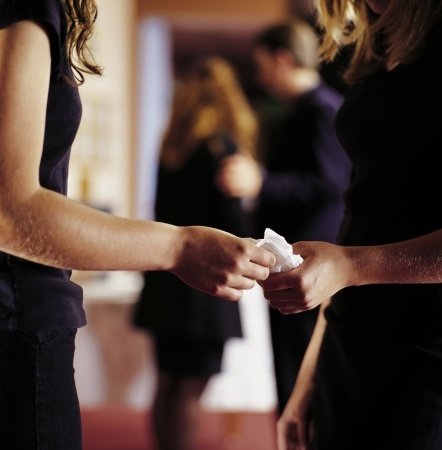Making Etiquette-ful Hospital Visits

Hospitals are open to their communities, encouraging visitors and volunteers to come in and build upon the services offered by the committed health care professionals who work there.
However, when visiting a hospital, you must remember that the staff place quality care and safety of patients first and foremost. It is most important that you support this priority, and not interfere with it.
Choosing good etiquette practices is about doing the right thing in a given situation, and nice manners are always in order. Simply put, your best behavior is what is expected when visiting someone in a hospital.
The Etiquette-ful Hospital Visitor
What constitutes proper hospital etiquette? Mindful awareness of the situation at hand and the needs of others affected by it. Specifically:
- Know and observe the hospital’s rules. Abiding by visiting hours, food, and gift limitations should be a top priority.
- Make certain the person you are visiting wants visitors!
- Be willing to follow special procedures advised by nursing staff, or instructions listed on the patient’s room door (wearing a mask, putting on a cover-up, leaving your phone outside the room, washing your hands, etc.).
- Show up healthy! The last thing you want to do is bring an illness with you to the hospital.
- Never wake a patient. If you enter the room and notice him or her sleeping, leave quietly and come back later.
- While bringing flowers is always appreciated, be aware of flower allergies and avoid wearing fragrances.
- Don’t barge into the room. Knock softly and ease into the room. If the door is open, say, “Knock, knock, may I come in?” or “Hello, John, you have a visitor” followed by a pause for permission to enter.
- Limit your visit. Patients are in compromised situations with both their health and privacy concerns. Fifteen minutes is enough time to extend your good wishes and have a nice chat, if appropriate.
- Keep a positive attitude. Leave your old hospital stories at home and instead, bring a light, funny anecdote and greetings from other family or friends who send good thoughts.
- Show respect for the patient’s personal space, and if the room is shared, for the space of the other patient. Don’t sit on the bed or touch any of the equipment. Don’t bother nurses to help you find a chair. Seating space is limited for a reason.
- Keep your cell phone on silent or turned off.
- Avoid drinking alcohol or smoking before visiting a patient in the hospital.
Engaging with Medical Staff as a Visitor
Unless the patient you are visiting has requested that you engage medical staff on her behalf, there is little reason for you to do so.
- Refrain from asking a nurse to order food for you or bring any item to you. “Could I have ...?” is never a good question from someone who isn't a patient.
- Always show kindness and respect and thank anyone who helps you.
- When the nurse or doctor comes in, excuse yourself from the room, unless asked or invited to stay. If you ask to stay, explain why. The patient may ask that you stay.
- Avoid being chatty with the nurse of doctor about his or her work, or anything else.
Your Role as a Visitor
Usually, when you visit someone in the hospital it is because you have a close relationship and are concerned for that person. It feels good to have that concern acknowledged, but this should not be your goal when making your visit.
Extend your good wishes to the patient. If family members are in attendance, ask if there is anything they need or how you can help.
If the patient is in a crisis situation, sit with the family in the waiting area and be of good company. A small show of support can mean the world during such times, but be aware that hospital waiting rooms have etiquette guidelines as well. A good visitor always has something to contribute, and always contributes without expecting to receive.
If a patient has asked you advocate for him or her, do so with a firm but calm demeanor. All patients deserve the best care and to heal as quickly as possible. Health care professionals are there to ensure you receive both of these things. Just remember they are people, too. Kindness and courtesy will take every situation to a better level.














